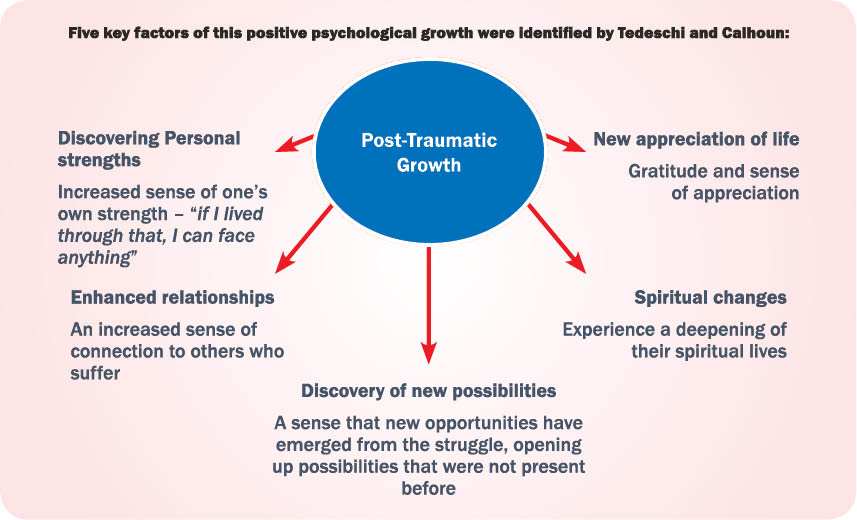.
On Teachers’ Day, we shower appreciation and love on our favourite teachers from school/college. This Teachers’ Day, which is just around the corner, let us discover how challenging life circumstances, traumatic experiences – which we may endure or go through – may also be our finest teachers, through the construct of Post-Traumatic Growth or PTG.
The idea that suffering and distress can lead to personal transformation is centuries old and oft spoken about. More recently, psychologists have been trying to unravel this phenomenon in a scientific manner. After human beings endure intense trauma or tragic circumstances, three patterns usually emerge:
- Some may experience severe distress, finding it very difficult to recover. This is a small subset.
- The majority of people go down in their well-being levels and eventually bounce back and reach the same levels – commonly known as Resilience.
- But what is most interesting is PTG, which refers to what can happen when someone experiences a traumatic event that challenges his or her core beliefs, has difficulty bouncing back, endures intense psychological struggle (maybe even a mental illness), and then ultimately finds a sense of personal growth. It’s a process that “takes a lot of time, energy and struggle,” as per Prof. Kanako Taku, Associate Professor of Psychology, Oakland University, who has both researched PTG and experienced it as a survivor of the 1995 Kobe earthquake in Japan.

Not everybody who faces a traumatic event will experience growth. However, a number of factors have been associated as predictors of PTG – personality traits such as an Openness to Experience, Extraversion and Optimism. The nature and intensity of the trauma also plays an important role.
Few ways which psychologists use to facilitate PTG are Self disclosure – through art, talk therapy which, helps us to not avoid or suppress the trauma. However, psychologists are careful not to jump right into the possibility of growth, which can often be misunderstood as minimizing someone’s pain and suffering and impact of the loss.
The concept of Post-traumatic growth also helps us to live our life with Equanimity, accepting both the good and bad in life. This Teachers Day let us reflect and introspect how our struggles and adversities have shaped us and maybe been our best teachers.
